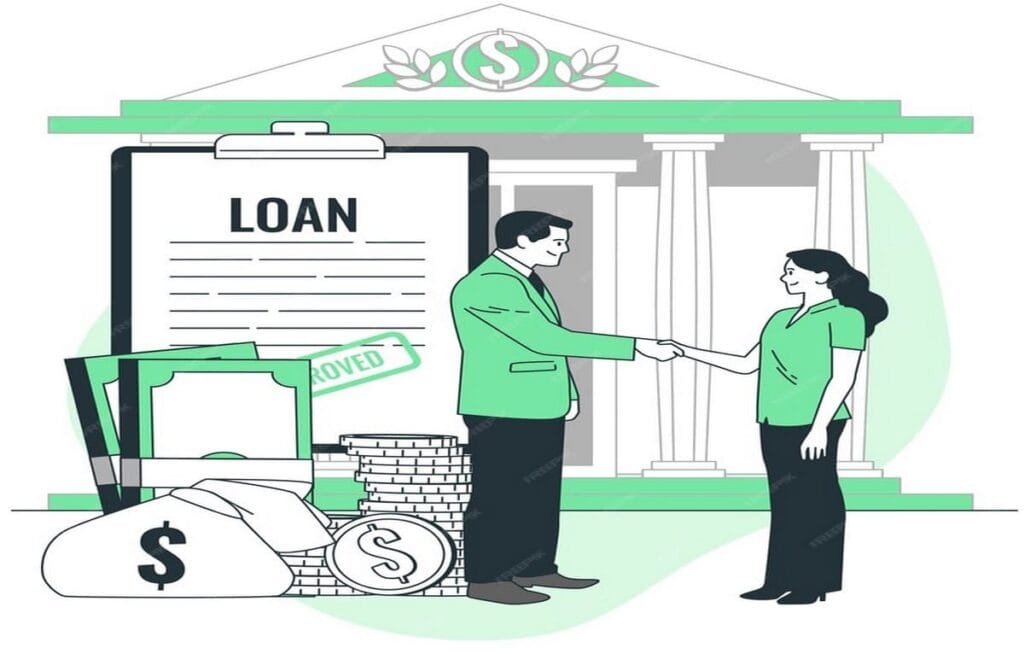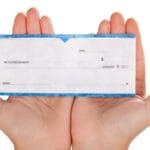In the realm of personal finance, securing a personal loan can be a pivotal step toward achieving various financial goals. Whether it’s consolidating debt, financing a major purchase, or covering unexpected expenses, personal loans offer flexibility and accessibility. However, the success of your loan application heavily relies on meticulous documentation. Understanding the importance of documentation is crucial, as it not only speeds up the approval process but also enhances your credibility as a borrower.

Types of Personal Loans and Their Documentation Needs
Personal loans come in various forms, each tailored to meet different financial needs. These include unsecured loans, secured loans, fixed-rate loans, and variable-rate loans. While the type of loan determines specific requirements, a core set of documents is universally required. Unsecured loans, for instance, prioritize creditworthiness, while secured loans necessitate collateral documentation. Grasping the documentation needs for your specific loan type is the first step towards a successful application.
Personal Identification: Essential Proofs for Verification
Passport: The Global Standard
A passport is universally recognized as a primary form of identification. It not only verifies your identity but also confirms your citizenship and legal ability to travel internationally. Lenders value this document for its comprehensive verification capabilities.
Driver’s License: A Dual-Purpose Document
A driver’s license serves as both an identification and proof of your ability to drive legally. Its inclusion in your documentation bundle offers an additional layer of personal verification, particularly valued for its familiarity and ease of validation.
State ID: An Alternative for Non-Drivers
For those without a driver’s license, a state-issued ID card provides a reliable alternative. It offers the same level of identification verification, ensuring that non-drivers have an equally robust means of proving their identity.

Income Verification: Proving Your Earning Capacity
Pay Stubs: Reflecting Recent Income
Pay stubs are essential as they reflect your current earning status. They provide lenders with a snapshot of your income consistency, which is crucial for assessing your ability to repay the loan.
Tax Returns: Showing Long-Term Financial Stability
Tax returns offer a broader view of your financial health over an extended period. They are particularly valuable for self-employed individuals, as they illustrate income stability and fiscal responsibility over multiple years.
Bank Statements: A Comprehensive Financial Snapshot
Bank statements detail your financial transactions, providing insight into your spending habits, income deposits, and overall financial management. They are indispensable for giving lenders a thorough understanding of your financial behavior.
Employment Verification Letter: Formal Proof from Your Employer
An employment verification letter from your employer serves as formal proof of your employment status. It typically includes details about your job position, salary, and tenure, reinforcing the authenticity of your income claims.

Credit History: Demonstrating Creditworthiness
Credit Report: Your Financial Track Record
A credit report is a comprehensive record of your credit history, detailing your borrowing and repayment activities. It is a critical document that helps lenders assess your creditworthiness and predict your future borrowing behavior.
Credit Score: The Numerical Representation of Your Credit Health
Your credit score distills your credit report into a single number, providing a quick reference for lenders. A higher score indicates better credit health, increasing your chances of loan approval.
Residence Proof: Establishing Your Address
Utility Bills: Regular Monthly Proof
Utility bills, such as those for electricity, water, or gas, serve as regular proof of your residential address. They are easy to obtain and provide up-to-date information on your living situation.
Lease Agreement: Confirming Rental Residence
A lease agreement confirms your rental status and details the terms of your residence. This document is particularly important for renters, as it formalizes their living arrangement.
Mortgage Statement: Proof of Homeownership
For homeowners, a mortgage statement serves as proof of property ownership. It not only confirms your residence but also provides details on your mortgage status, which can be relevant for financial assessments.
Asset Verification: Showing Collateral and Net Worth
Property Deeds: Proof of Real Estate Ownership
Property deeds are legal documents that confirm ownership of real estate assets. They are essential for secured loans, where property is used as collateral.
Vehicle Titles: Demonstrating Valuable Assets
Vehicle titles demonstrate ownership of automobiles, which can also be used as collateral. They add to your overall asset profile, enhancing your net worth in the eyes of lenders.
Debt Information: Transparency About Existing Obligations
Loan Statements: Current Loans and Repayment Details
Loan statements provide details about your existing loans, including balances and repayment terms. Transparency about your current obligations is crucial for lenders to assess your total debt load.
Credit Card Statements: Revolving De
Personal Statement: Explaining the Loan’s Use
A personal statement detailing the purpose of the loan helps justify your need for borrowing. Whether it’s for home improvement, education, or medical expenses, clarity on the loan’s purpose can strengthen your application.
Purchase Agreements: When Buying Goods or Services
If the loan is for purchasing specific goods or services, attaching purchase agreements can substantiate your claim. These documents provide detailed information about the intended use of the loan funds.
Supporting Documents: Additional Papers to Strengthen Application
Social Security Card: Verifying Identity
A social security card is often required to verify your identity and social security number. It adds an extra layer of personal identification verification.
Birth Certificate: Proof of Birth and Identity
A birth certificate serves as proof of your birth and identity, providing another form of personal verification. It is particularly useful for confirming vital details.
Divorce Decree: Explaining Changed Financial Situations
A divorce decree can explain significant changes in your financial situation, such as altered income or debt responsibilities. It provides context for any major financial shifts that may affect your loan application.
Common Pitfalls in Document Preparation
Missing Documents: What Not to Overlook
Missing crucial documents can delay your loan approval or result in rejection. Ensuring that all necessary paperwork is complete and accurate is vital for a smooth application process.
Inaccurate Information: Ensuring Accuracy and Consistency
Inaccurate or inconsistent information can raise red flags for lenders. Double-checking all documents for accuracy ensures that your application is credible and trustworthy.
Tips for Organizing Your Documents
Creating a Checklist: Ensuring Completeness
Creating a comprehensive checklist helps ensure that you have all required documents ready. It streamlines the preparation process and reduces the likelihood of missing important paperwork.
Digital vs. Physical Copies: Pros and Cons
Deciding between digital and physical copies depends on your lender’s preferences. Digital copies offer convenience and easy sharing, while physical copies provide tangible proof. Understanding the pros and cons of each format can help you prepare more effectively.
Bank and Lender Requirements: Knowing Your Lender’s Preferences
Traditional Banks: Standard Requirements
Traditional banks often have stringent documentation requirements. Understanding these can help you prepare a thorough application, increasing your chances of approval.
Online Lenders: Streamlined Processes
Online lenders typically offer more streamlined processes with fewer documentation requirements. Knowing what to expect from online lenders can help you choose the most convenient option.
Credit Unions: Member-Focused Documentation
Credit unions may have unique documentation needs focused on their members’ interests. Being aware of these requirements can help you tailor your application accordingly.
The Role of a Co-Signer: Additional Documents Needed
Co-Signer Agreement: Legal Responsibility
A co-signer agreement outlines the legal responsibilities of the co-signer. This document is crucial when someone else is sharing the repayment responsibility.
Co-Signer’s Financial Documents: Proving Their Capability
The co-signer’s financial documents, such as income verification and credit history, are necessary to prove their capability to support the loan. This enhances the overall strength of your application.
How to Submit Your Documents: Best Practices
In-Person Submissions: Direct Interaction
Submitting documents in person allows for direct interaction with your lender, providing an opportunity to clarify any questions immediately
Frequently Asked Questions (FAQs)
What is the personal loan approval process?
The personal loan approval process involves several steps: application submission, document verification, credit evaluation, and final approval or denial. Lenders review your financial status and creditworthiness before making a decision.
What is the best bank to get approved for a personal loan?
The best bank for a personal loan depends on your specific financial needs and credit profile. Research banks with favorable terms, competitive rates, and positive customer reviews to find the best fit for your situation.
What is a good score to get a personal loan?
A good credit score for obtaining a personal loan generally starts at 650 or higher. However, a higher score, typically above 700, improves your chances of getting better terms and lower interest rates.
What are the 5 easy steps to get a personal loan?
- Assess your financial needs and loan amount.
- Check and improve your credit score.
- Research and compare lenders and their terms.
- Gather required documentation and apply.
- Review the loan offer and finalize the agreement.
How do I check if I qualify for a loan?
You can check if you qualify for a loan by reviewing your credit score, assessing your income and debt levels, and using pre-qualification tools provided by lenders. This helps determine your eligibility before formally applying.
Which bank gives a loan easily?
Banks with lenient approval criteria and streamlined application processes may offer loans more easily. Online lenders and credit unions often provide faster and more accessible loan options compared to traditional banks.
How hard is it to get a personal loan?
The difficulty of obtaining a personal loan depends on factors such as your credit score, income, and overall financial health. Applicants with strong credit profiles and stable income find it easier to secure loans.
What is the minimum loan on a personal loan?
The minimum loan amount for a personal loan varies by lender but generally starts at $1,000 to $2,000. Some lenders may offer smaller or larger minimum amounts based on their policies.
What do I need to get a bank loan?
To get a bank loan, you typically need to provide personal identification, proof of income, credit history, and information about your debts and assets. Banks require these documents to assess your financial stability and loan eligibility.
What is the personal loan process?
The personal loan process includes applying for the loan, submitting required documents, undergoing credit and income evaluation, receiving a loan offer, and finalizing the agreement. The process may vary slightly depending on the lender.
What are the 5 basics of personal finance?
- Budgeting: Tracking income and expenses to manage finances effectively.
- Saving: Setting aside money for emergencies and future goals.
- Investing: Allocating funds to grow wealth over time.
- Debt Management: Handling and repaying borrowed funds responsibly.
- Retirement Planning: Preparing financially for retirement through savings and investments.
Can I get a loan on top of a loan?
Yes, you can get a loan on top of an existing loan, but the feasibility depends on your overall financial health, including your credit score and debt-to-income ratio. Lenders will assess your ability to manage additional debt before approving another loan.
Source: Investopedia
How fast can I get a personal loan?
The speed of obtaining a personal loan depends on the lender’s processing time. Generally, loans can be approved and disbursed within a few days to a week. Some lenders offer faster processing for quicker access to funds.
Source: NerdWallet
What is the minimum for a personal loan?
The minimum amount for a personal loan varies by lender but generally starts at around $1,000 to $2,000. Some lenders may offer different minimum amounts based on their lending criteria.
Source: Bankrate













